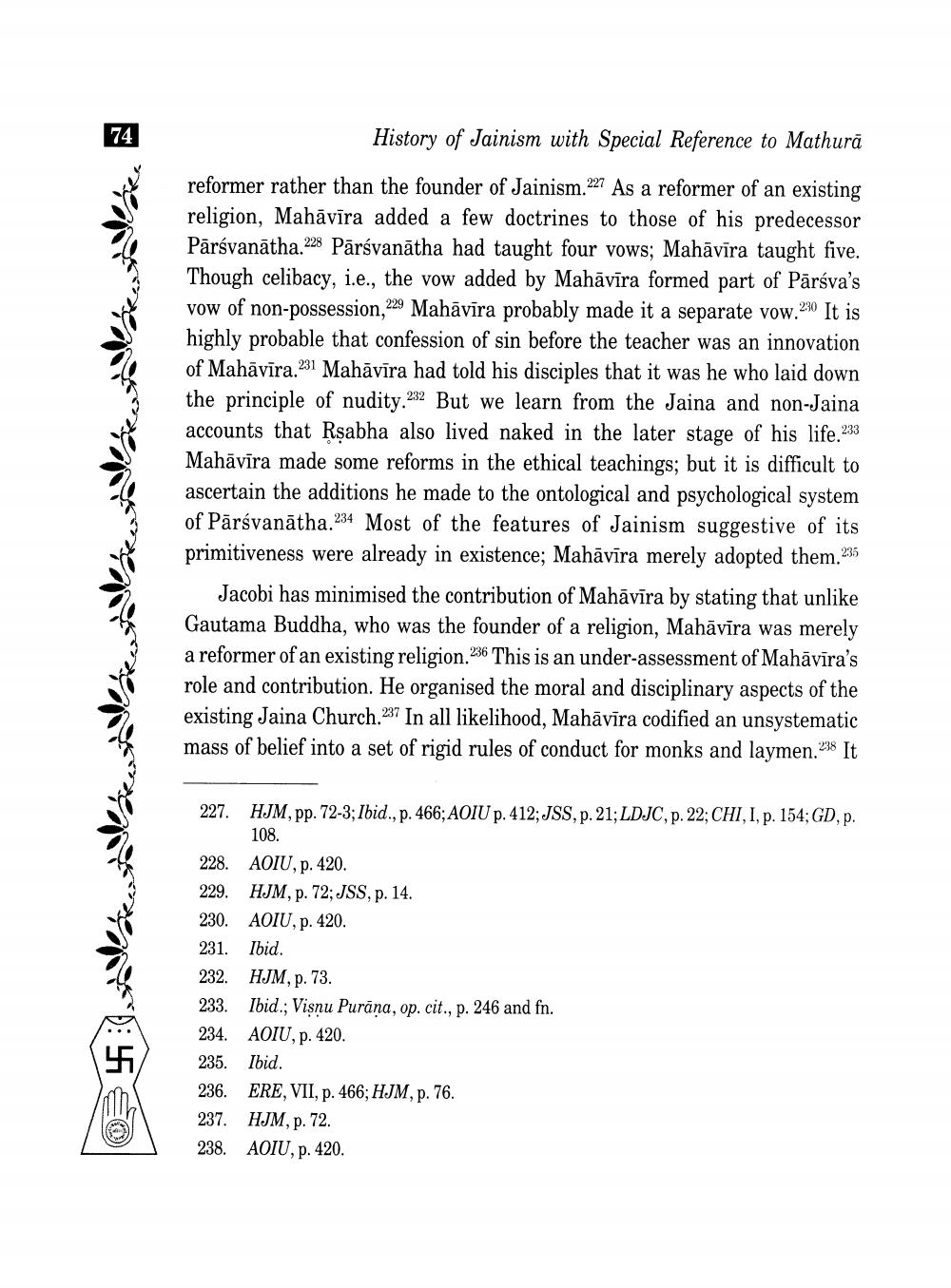________________
74
History of Jainism with Special Reference to Mathurā
reformer rather than the founder of Jainism.227 As a reformer of an existing religion, Mahāvīra added a few doctrines to those of his predecessor Pārsvanātha.228 Pārsvanātha had taught four vows; Mahāvīra taught five. Though celibacy, i.e., the vow added by Mahāvīra formed part of Pārsva's vow of non-possession,229 Mahāvīra probably made it a separate vow.230 It is highly probable that confession of sin before the teacher was an innovation of Mahāvīra.231 Mahāvīra had told his disciples that it was he who laid down the principle of nudity232 But we learn from the Jaina and non-Jaina accounts that Rsabha also lived naked in the later stage of his life.233 Mahāvīra made some reforms in the ethical teachings; but it is difficult to ascertain the additions he made to the ontological and psychological system of Pārsvanātha.234 Most of the features of Jainism suggestive of its primitiveness were already in existence; Mahāvīra merely adopted them.235
Jacobi has minimised the contribution of Mahāvīra by stating that unlike Gautama Buddha, who was the founder of a religion, Mahāvīra was merely a reformer of an existing religion.236 This is an under-assessment of Mahāvīra's role and contribution. He organised the moral and disciplinary aspects of the existing Jaina Church.237 In all likelihood, Mahāvīra codified an unsystematic mass of belief into a set of rigid rules of conduct for monks and laymen.238 It
227. HJM, pp. 72-3; Ibid., p. 466;AOIU p. 412; JSS, p.21; LDJC, p. 22; CHI, I, p. 154; GD, p.
108 228. AOIU, p. 420. 229. HJM, p. 72; JSS, p. 14. 230. AOIU, p. 420. 231. Ibid. 232. HJM, p. 73. 233. Ibid.; Visnu Purāna, op. cit., p. 246 and fn. 234. AOIU, p. 420. 235. Ibid. 236. ERE, VII, p. 466; HJM, p. 76. 237. HJM, p. 72. 238. AOIU, p. 420.




